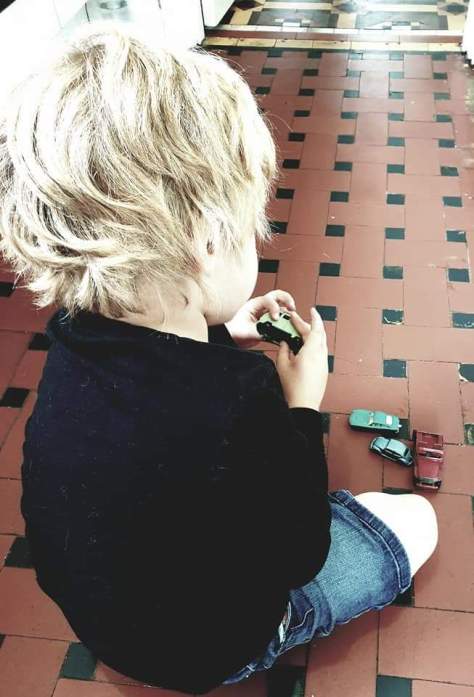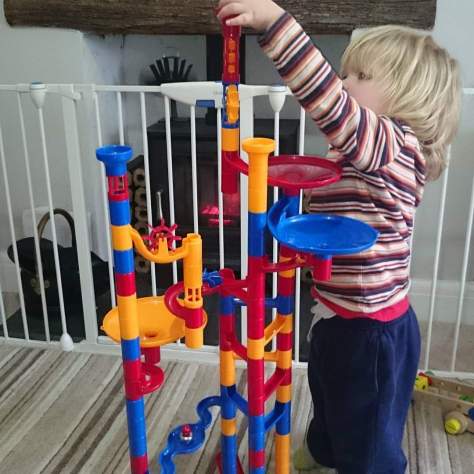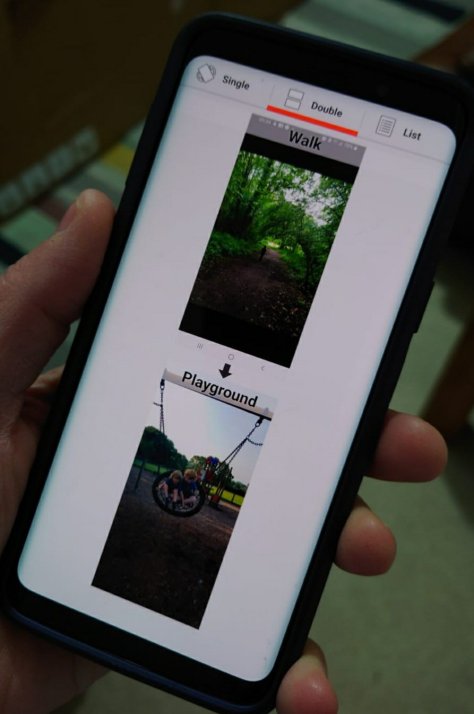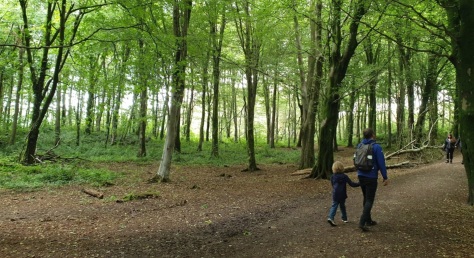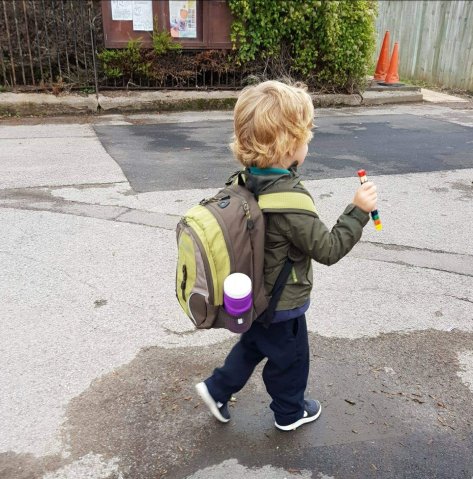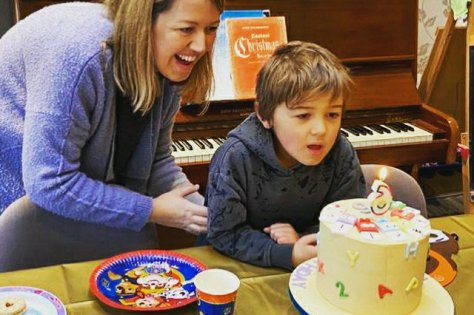I remember sitting around a table, a range of individuals at each space holding different professions and reasons for being there. The school headmistress, the deputy head, the speech and language therapist, my son’s class teacher, his 1-2-1 and then me and my husband, his parents, all waiting to discuss my son.
We were in a school meeting about my son, waiting to discuss his development and his future targets.
Rhys was in a mainstream school, with full support via an amazing teaching assistant who helped him move forward in engagement, and speech. The arrangement was meeting my needs, and my expectations for my son of attending the school across the road, and progressing through with the additional support he needed for his education.
Everyday when I picked him up he would come out to me, his home book in his bag detailing his achievements for the day. The statements in the book were all I had to go by, my son couldn’t talk or answer the standard question of, “How was your day?” I knew nothing of his activities except for the few sentences in black and white, and a brief conversation at the school entrance.

And now I sat in a meeting. A formal arrangement to talk about my little boy. My little boy who had only just turned four, a few months earlier.
And then the words came.
“We don’t think this is the right place for Rhys”
It hit us hard. It was like someone had taken all our plans and expectations for my son, and within the few seconds in which those words being delivered, they had smashed our view of his future into a thousand pieces, leaving us with nothing.
As the words were said, I had no response. I couldn’t talk. Others may have immediately retaliated, argued “What do you mean, what are you talking about?” or asked questions of what the right setting was.
But I just sat there trying to process the words. Like a machine in slow motion, dissecting each word and working out what it meant through a state of shock.
As the rest of the meeting progressed, I sat numb. All the words which were said just brushed over me, not absorbing into my mind. I had no response to the statements, because I felt empty, like everything I had every planned, and decided and envisioned, had been wiped out in one single swipe!
It was like taking the bullet which had been fired, and not reacting, just feeling the burn.
I walked out of that meeting in a haze, as if I wasn’t present in the situation, because I had nothing to grasp hold of, I was left to rebuild something from nothing.
Time to Find Answers
After I had cried for hours, I phoned the autism outreach programme who were responsible for my son’s support, and asked them the question I had managed to form in my mind, “What school is right for my son?”
If his current school was not the right setting, I wanted to know what the right setting was, and that was a question I had for the professionals, the ones who knew about Autism and the methods to bring the best out in my child. These people had been supporting my son and had constructed reports, assessments on him and even knew him as a person, having worked with him directly.
As I stood with the phone to my ear, I heard the words which did not answer my question, just a political sidetrack of the guidance I needed, “You know your child best, and the education he needs” came the response.

If I had thought my plans had been shattered before, those words just fired a second bullet. I had asked the professionals for help, but just had the challenge passed back to me. Passed back to a person, who had only really started to understand what autism was, less than twelve months ago. And now I was expected to know the answer to a question on his education, a decision that fundamentally was key to his future!
The truth was not only that I had no knowledge or idea of what education was right for my son, but more importantly, I didn’t know my son, and I didn’t know how to address his challenges or difficulties.
People spent years studying psychology, speech therapy, occupational therapy and researching the best methods of engaging and teaching those with autism. But no one would tell me the best for my child, or what would be best for him?
I accepted that the decision would always be on our shoulders, but a decision can not be made without information, and that information was not forth coming.
So I researched
So I researched, and we visited different schools and settings. We gathered all the information we could find.
But I still struggled to make a decision.
It takes a long time to change expectations, they do not change over night. So I did the only thing I could. I made a decision on the facts, taking all the emotion out of it. Because there was a lot of emotion, a lot of disappointment and feeling of failure.
We decided on moving our boy. After finding a different mainstream school which had a base unit specific for autistic children, we felt it gave the best of both worlds.
I then had to Fight
But unlike the normal process of moving schools I then found out I had to fight. We had been told his current setting was not suitable, we had found an alternative, and then we had to fight for it.
The process firstly involved a request into the local education authority for a school move, with explanations of why, and all the supporting evidence.
The case then went to panel.
It went to a group of people who would sit around a table, and view the facts. The black and white words which described our case, without any attendance by ourselves or my son to discuss the need.
But that was not the end.

Once approved at the first panel, it went to a second panel for assessment. All while weeks passed with no communication on the process or what education my son would be provided. After a second panel approval, then I had to have my fingers crossed that there was even space in the school. But thank goodness there was.
We were lucky. Many families are not.
Rhys started at his new school in the September, a whole eight months after the process began. I was still getting to grips with the change, and I still didn’t know if we had made the right decision.
But it had been made.
As the weeks passed and normality of the new school run settled into becoming the norm, I started to see changes in my son. I started to see his happiness and excitement at running off to school, and the independence and being part of a group that the new school provided.
The decision I had made with my head, soon settled as the right decision within my heart.
But this was not the end.
Unlike all the other families who only worry about getting a place in school for their child in reception and then again in high school, we go through the process every year. Annually we sit down with the school, and assess my son’s progress and educational needs. We sit in a formal meeting and a decision is made if he is still in the right setting.
At any point we may be reassessing again. We may be looking to move him. The fight for education, the fight for a vital need that should not be a fight!
Education is a right, something that everyone else takes for granted is made difficult for our children.
Why does my son have to changes his world to adapt to a system that is flawed? Why can’t the system change to accommodate? Why can’t the system be inclusive, and adoptive of all abilities?
Let me know your story by submitting here.
Leave a comment below and share our story via social media.



